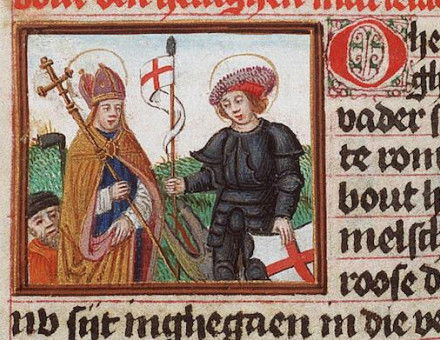War and Profit in the Late Middle Ages
C.T. Allmand describes the economy of medieval military history, and how Chaucer’s “parfit gentil knight”, on his pilgrimage to Canterbury, was probably sustained by the prizes won in foreign wars.
The late medieval soldier rarely fought solely for the sake of King and honour. He fought for himself, knowing well that war, and especially successful war, was profitable. The reader of Froissart is immediately struck by the emphasis that he placed upon honour and chivalry.
That is true. But he also stressed another aspect of the wars that he set out to describe—the quest for gain. The whole of military society was deeply imbued with this desire for profit-making, and elaborate rules were established to ensure fair profit-sharing. Its “allurements” turned war into an almost commercial enterprise.
Behind this development lay a number of good reasons. Ever since the end of the thirteenth century, English Kings had favoured a new kind of army, which gradually took the place of the feudal levy. One reason for this was that the feudal force was supposed to serve but forty days in any one year, and was not intended for service abroad. Attempts to take it out of England had caused trouble to both John and Henry III, for the levy was seen as primarily defensive in purpose.





